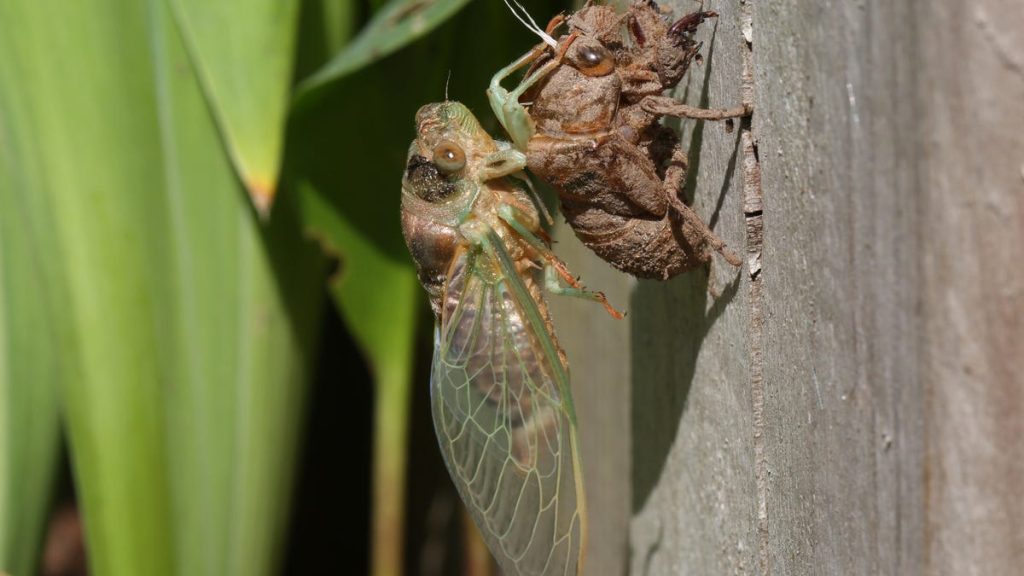Cicadas are a common snack for many dogs, including a sweet yet dumb dog whose addiction to eating cicadas has led to frequent bouts of vomiting. This behavior is not unique to this particular dog, as many dogs across the US have been found to enjoy munching on these buzzing insects. With a massive emergence of cicadas expected to hit 17 states this summer, dog owners may be concerned about the potential risks of their pets consuming these insects. While cicadas themselves are not venomous or poisonous, they can cause some gastrointestinal upset if consumed in large quantities. It is important to monitor your pet for any abnormal behavior and seek veterinary advice if necessary.
This year’s emergence of cicadas is expected to be one of the largest in recent years, with two broods, Brood XIX and Brood XIII, emerging simultaneously in May. This double emergence is a rare occurrence, with the last instance happening back in 1803. The cicadas from both broods will be taking over 17 states, providing ample opportunities for dogs to indulge in their cicada-snacking behavior. Despite the potential for a summer full of cicadas, dog owners should not be overly concerned about the safety of their pets if they happen to consume these insects in moderation.
According to experts, cicadas are not dangerous for dogs to eat, as they are not venomous or poisonous and do not bite or sting. However, the hard shells of cicadas can potentially cause gastrointestinal issues if consumed in large quantities, leading to symptoms such as vomiting and stomach sensitivity. While many dogs may experience minor digestive upset after consuming cicadas, it is important to monitor your pet for any signs of more serious issues, such as depression, lethargy, or excessive salivation. If your dog exhibits any abnormal behavior, it is recommended to seek advice from a veterinarian.
For dog owners whose pets have a taste for cicadas, it is essential to take precautions to prevent excessive consumption of these insects. Supervision of pets while outdoors during cicada season can help prevent them from indulging in their cicada-snacking habit, reducing the risk of potential gastrointestinal issues. While the occasional cicada snack may not harm your pet, excessive consumption could lead to digestive problems or even blockages. By staying vigilant and monitoring your pet’s behavior, you can ensure their safety and well-being during the cicada emergence season.
In conclusion, while many dogs enjoy snacking on cicadas, it is essential for pet owners to be mindful of the potential risks associated with this behavior. Monitoring your pet for any signs of gastrointestinal upset or abnormal behavior can help prevent serious issues from arising. By taking precautions to limit your pet’s access to cicadas and seeking veterinary advice if needed, you can ensure that your furry friend stays healthy and happy during cicada season. Remember to prioritize your pet’s well-being and safety, and enjoy the spectacle of the cicada emergence without worrying too much about the occasional cicada snack.












